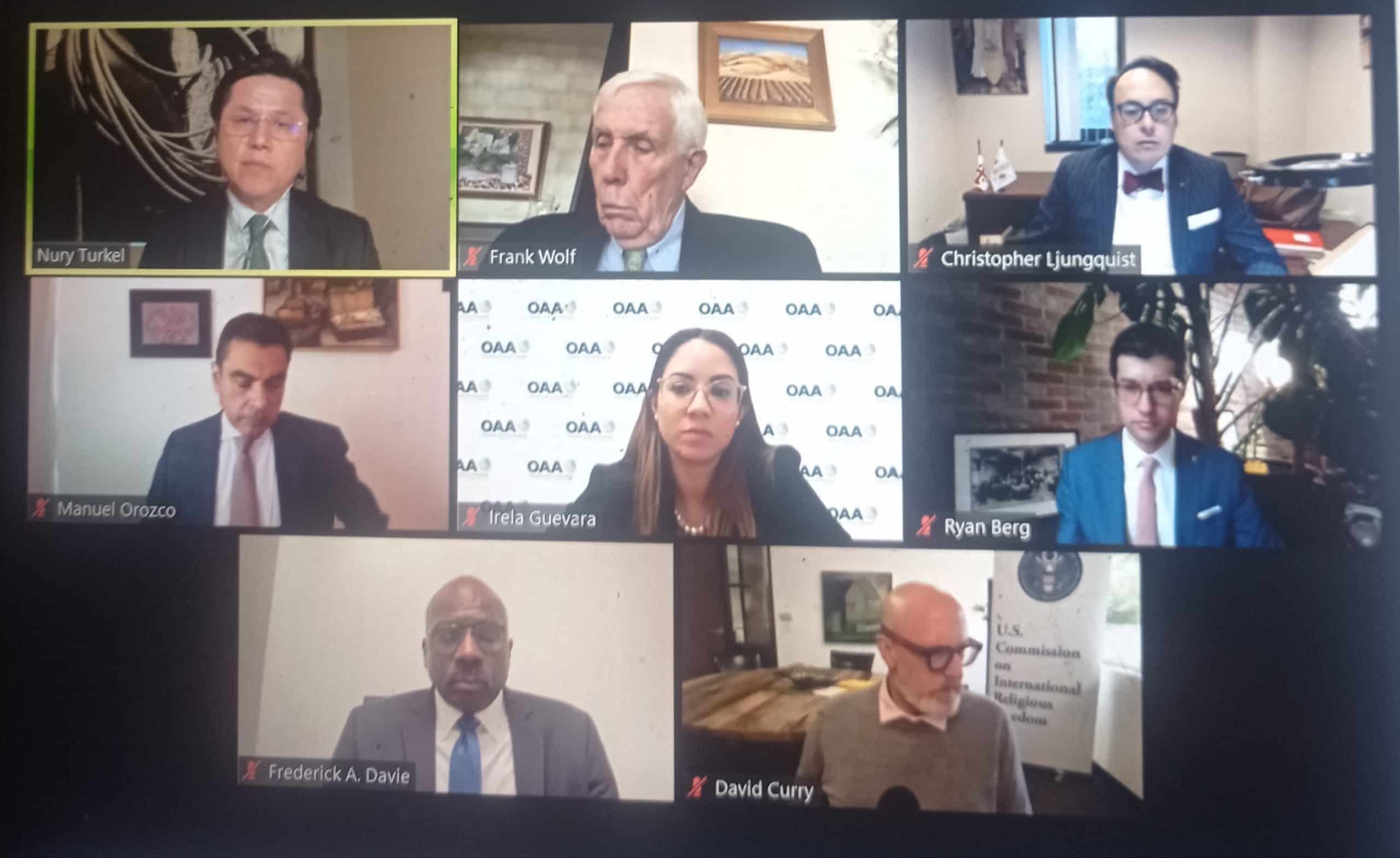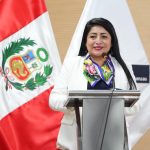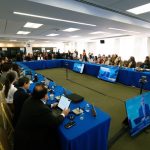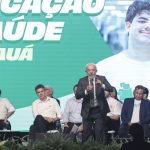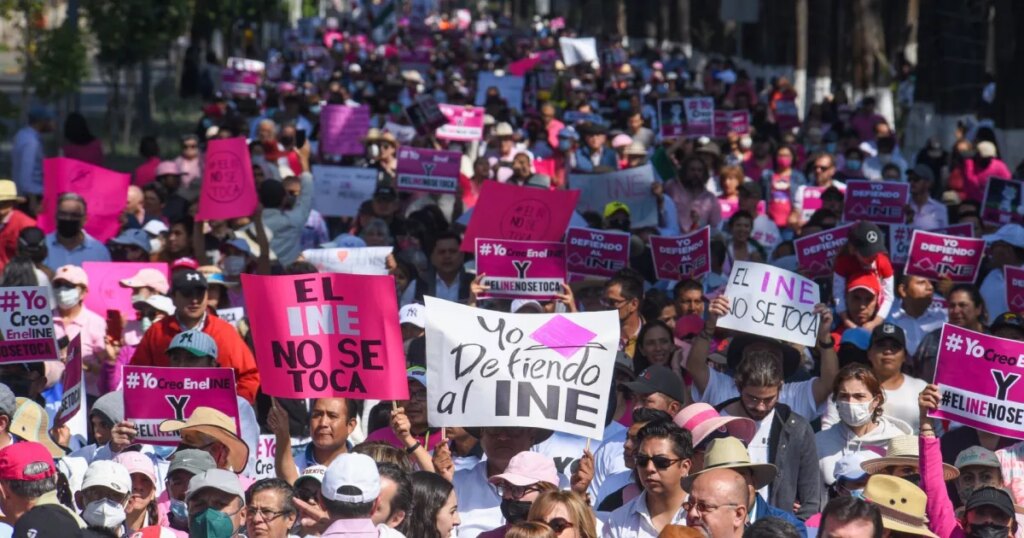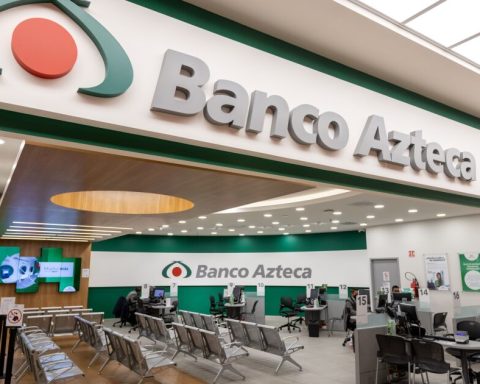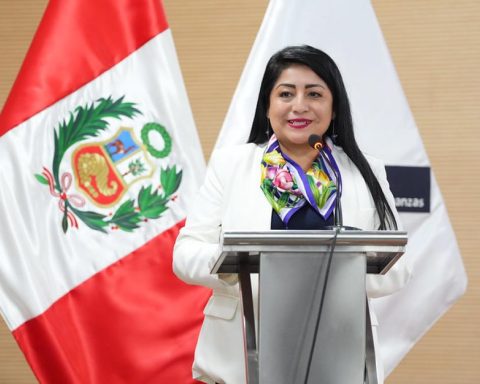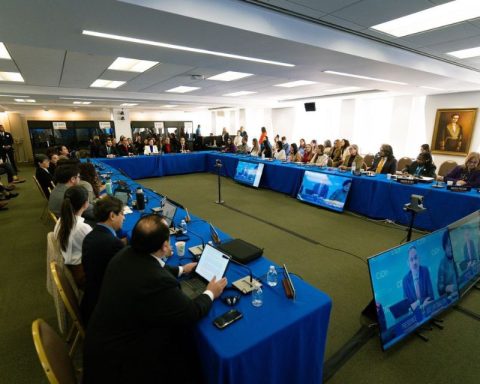Four witnesses denounced this Tuesday, November 15, the systematic repression of the Daniel Ortega dictatorship against the Catholic Church in a virtual session of the United States Commission for International Religious Freedom (USCIRF), in which they urged greater pressure on the United States authorities against the regimen.
The Nicaraguan political scientist Manuel Orozco, director of the Migration, Remittances and Development Program of the Inter-American Dialoguea Washington DC think tank specializing in Latin America, described the Ortega regime as a “rogue state” in which fear, violence and clientelism prevail.
Ryan Berg, director of the Americas Program at the Center for International Strategic Studies (CSIS)another body that has monitored the serious human rights crisis in the country, demanded international sanctions against the Nicaraguan Army for its complicity with the repression and the dictatorship.
Irela Guevara, supervisor of the implementation of the programs of the Government of the United States in El Salvador and Nicaragua, joined the audience in which Christopher S. Ljungquist, adviser for Latin America of the Conference of Catholic Bishops of the United States, was also heard.
“Nicaragua has become the totalitarian state that Daniel Ortega wanted to impose in the 1980s and could not. Now, from 2018 and 2022, the regime has achieved effective control of the lives of its citizens, their future. Its dynastic power uses fear, violence, hatred and clientelism to govern. This is not the first time that he has persecuted religious authorities and people of religious beliefs,” Orozco said.
The political scientist describes an involutive process: institutional checks and balances were eliminated between 2014 and 2016 in Nicaragua, through electoral fraud and the phasing out of opponents, then came the repression in 2018 that caused the death of innocent citizens and imprisonment of others. In 2019, new business taxes were created, civic engagement was penalized, and in 2020 a legal framework used for the imprisonment of 50 prominent leaders was approved in the months leading up to the 2021 presidential vote, in which Ortega and his wife Rosario Murillo were re-elected without legitimacy.
“During 2022, the regime used the law to end pluralism, expelling more than 300,000 Nicaraguans this year, and expanding political persecution against religious authorities, parishioners, withholding passports from relatives of prisoners and other citizens, and completing control territory of his party throughout the country,” added Orozco.
The repressive escalation against the Catholic Church has left 11 religious imprisoned in Nicaragua since last June. Two of these priests were convicted of common crimes—victims of unfair legal proceedings—eight are being prosecuted for conspiracy and propagation of false news, while the Bishop of Matagalpa, Rolando Álvarez, a Nicaraguan human rights defender, is detained at his parents’ house in Managua by the Police since August. Orozco sees a radicalization, and a way to “Talibanize” Nicaragua, which includes continuing political trials against civil society and the private sector.
The data presented by Orozco show a Police—the repressive body under Ortega’s orders—as an apparatus made up of 20,000 people in a country of 1.6 million homes, which means that there is one police officer for every 100 homes, “ as many police officers as there are in Honduras, a country 30% more populous and with 9 daily homicides”.
Orozco demanded that sanctions be increased against all those who facilitate repression and corruption, as well as ensure that international financial institutions are held accountable for the loans they grant to Nicaragua, continue multilateral pressure and lobby for the implementation of the Renacer law, an instrument with which is in debt the Biden Administration.
Ryan Berg: “Sanctions to the IPSM”
Ryan Berg requested sanctions for the Military Social Welfare Institute (IPSM), the financial arm of the Nicaraguan Army, one of the supports of the Ortega regime.
He added in his intervention that the dictatorship has found in this new phase of repression “new depths of depravity”, arresting almost a dozen priests, in addition to closing the Church’s media outlets, which must find a firm response from the international community.
“Simply put, dramatic events mean that the time for individual sanctions is over. The United States should sanction the Nicaraguan Army under the same logic used to sanction the National Police. The army has been involved in some of the country’s human rights abuses and is accused of arming paramilitary groups. The United States should also target the Nicaraguan Army,” Berg said.
He also mentioned the need to cut off the regime’s sources of financing. He recalled that US law mandates that the country’s representatives in financial institutions can vote against the loans. In the case of the Central American Bank for Economic Integration (CABEI), Ortega’s top financier, the ideal should be for the United States to ask its partners Taiwan, South Korea and the European Union to enforce the democratic clause in loans, according to Berg.
On the other hand, he insisted on encouraging the Pope Francisco to speak louder in the context of the persecution against the religious.
“The United States must indirectly press for the release of political prisoners in Nicaragua. You must insist that Nicaragua allow family visits to prisoners, show signs of life for the disappeared, force Nicaragua to allow NGOs and human rights defenders to visit prisons, and press for better conditions and legal representation,” he suggested. .
In addition to the judicial processes fabricated against the priests, the dictatorship expelled the apostolic nuncio Monsignor Waldemar Stanislaw Sommertag last March, 18 nuns from the order of the Sisters of the Order of Charity, in July and has maintained a hate speech against the religious, whom he calls “coup plotters” since 2018.
On September 29, Ortega described the Catholic Church as a “perfect dictatorship” and slipped a false accusation against the religious who denounced the repression of the State in 2018.
“They left the churches armed to launch attacks against police stations. And some priests, bishops, calling people to put lead in me, what were they waiting for to kill me, look what kinds of bishops and priests, they said it calmly. A gang of assassins, undercover with the Catholic Church,” Ortega said without offering proof.
At the end of last October, Cardinal Leopoldo Brenes, Archbishop of Managua, traveled to Rome to meet with the Supreme Pontiff. He spoke of maintaining a dialogue with Ortega, but his critics do not understand what he is referring to, given the increase in state repression.
For her part, Irela Guevara also recalled in her speech the religious who have had to stay abroad, as in the case of the apostolic nuncio, the closure of eight stations, while describing a “systematic attack” that includes “monitoring ” to parishes and faithful carried out by the Police.
